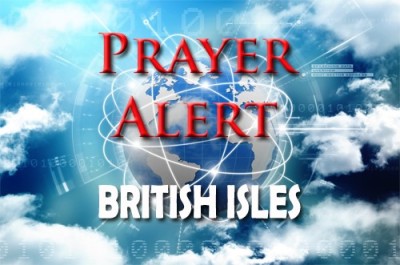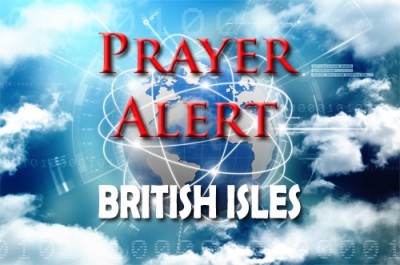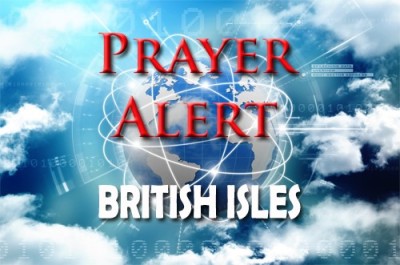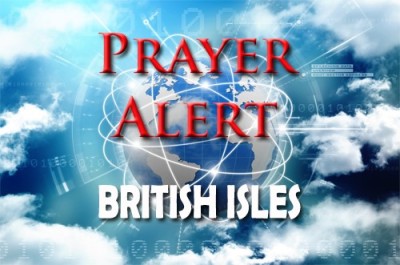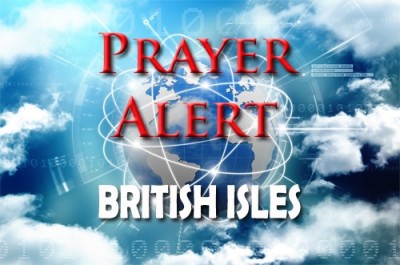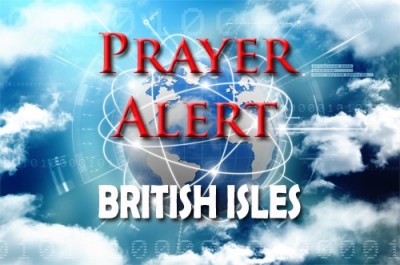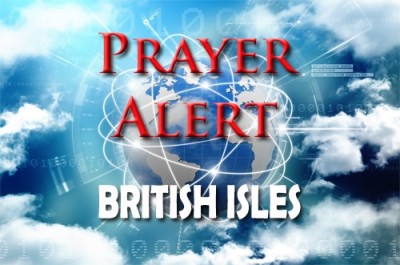USA: drive-thru prayer
23 Jun 2023Intimacy with God Church in Houston believes a personal relationship with God will positively affect generations and return entire families to God’s original design. Recently they decided to spread God’s love in a creative way. They put up posters saying ‘Drive-thru Prayer’ and stood in the street and waited. Many came: more and more were blessed by the love they offered. After praying they made sure to share Christ and handed out tracts and Bibles. Many who experienced their outreach praised the church for a job well done: comments included ‘This is awesome’ and ‘This should be international’.
Police and politicians: sexual misconduct
23 Jun 2023Michael Lockwood, ex-police watchdog director general, has been accused of six counts of indecent assault and three counts of rape against a girl under 16 during the 1980s. He left his post in December after it emerged he was being investigated over these offences, and has now been charged under the Sexual Offences Act 1956. MP David Warburton is resigning his seat. Last year he was suspended from the party pending the outcome of an independent investigation into allegations of sexual harassment and drug use. On 18 June he said he was resigning because he felt he was denied a fair hearing by the watchdog over the claims that he made unwanted advances to two women. Lord, please guide the direction of our country. Call into politics and the police service people who are in your kingdom.
Churches urged to start benevolence funds
23 Jun 2023A Christian economist has urged churches to consider setting up benevolence funds to help members struggling with the cost of living as inflation proves more persistent than expected. Former IMF economist and government debt manager Dr Paul Mills said the step was needed for those on fixed incomes or losing their jobs. He was speaking after an economic advisor to the Chancellor said the Bank of England may need to spark a recession to finally get rising prices under control. The bank's target from the Government is to get inflation down to 2%, but the public has yet to see the pain that is coming through the economy from interest rate rises. On 22 June the base rate increased to 5%, a bigger increase than expected. Dr Mills said it would help to pray for the nation, and for medium- to long-term steps to turn things around.
Headaches for Rishi Sunak
23 Jun 2023As another scandal hits the Tory party, its MPs are even more gloomy about how the Prime Minister can project the government as honest and professional. MPs endorsed a report saying that Boris Johnson lied over Partygate. But 225 of Boris’s former Conservative MP colleagues were absent, including Rishi Sunak who has not said if he agrees or disagrees with the report’s findings. See Eight months into Boris’s leadership, he faced Covid. Eight months into Rishi’s leadership, he struggles to distance himself from the Conservative chaos and deliver a government of ‘integrity, professionalism and accountability’ as he promised in October. A former cabinet minister said, ‘We can’t sell a vision to the public if Rishi doesn’t have one himself. He needs to think big, be creative, and articulate a dream the public will want to live by.’ Pray for Rishi Sunak to have heaven's wisdom in the current crisis.
Growing public distrust in British media
23 Jun 2023Data compiled from 2018 to 2022 by Reuters showed the BBC experiencing a decline in public trust from 75% to just 55%. Other mainstream TV broadcasters and newspapers suffered a similar decline. The UK is in 26th position, ahead of only South Korea and Japan in terms of public faith in media. British people have among the lowest levels of trust in journalists, with only 37% of those surveyed saying that they trusted them, versus the global average of 47%. Only two out of every ten people feel that the news media is ‘independent from undue political or government influence most of the time’. This ranks the UK 16th among the 24 nations surveyed, on a par with Romania. Our much-vaunted media landscape is not the envy of the world as we are often led to believe. See also
Children with eating disorders
23 Jun 2023Eating disorders and self-harming have been rising among children and young people for a number of years. Before the pandemic there was a gradual decline in mental health among teenagers and young people, and five children in every classroom had a probable mental disorder. Between 2020 and 2022 around 3,862 thirteen- to sixteen-year-olds had eating disorders. In the same age group, 9,174 cases of self-harm were recorded. During the pandemic, prolonged access to social media, more focus on body image and less face-to-face contact may have led to feelings of low self-esteem and psychological distress, particularly among adolescent girls. Nevertheless, the NHS is currently treating more children and young people than ever before, with healthcare professionals under huge amounts of strain. Tom Quinn, director of external affairs at charity Beat, says there is a postcode lottery for care and everyone needs to get the help they need as quickly as possible.
AI developing faster than laws regulating it
23 Jun 2023This year’s London Tech Week focused on the need for artificial intelligence (AI) to be trustworthy and responsive to the needs of society. UK Research and Innovation has funded £50 million to create secure AI to help solve major challenges by bringing experts from different fields together. Professor Gregory O’Hare said, ‘AI offers profound opportunities, but could also be used for sinister means with financial or political implications, like boundary incursions and even wars. Will it always be used for good purpose, or is there a significant chance it will be used for Machiavellian purposes? AI is developing at a faster pace than laws can be drafted in response.’ The Irish Congress of Trade Unions said they should be involved at an early stage when addressing AI concerns as the EU AI Act is not suitable and is more than disappointing from workers’ point of view. It offers some comfort but ‘doesn’t go far enough’.
Christian teaching assistant wins appeal
23 Jun 2023On 20 June the Employment Appeal Tribunal ruled in the favour of Christian teaching assistant Kristie Higgs who was sacked over her Facebook posts highlighting inappropriate sex education materials at her child's primary school. The judgement overturned the decision of an earlier tribunal for not properly considering Kristie's rights to freedom of belief and freedom of expression. Praise God that her solicitors secured this breakthrough and thank Him for this step forward, even though Kristie’s story isn't over yet. The case must now go back to the employment tribunal. Judge Eady apologised to the parties for the delays caused by her having to now send the case back for a re-hearing, which further delays full justice for Mrs Higgs. Pray for Christian parents to be free to raise their children in line with their Christian beliefs, and for children to be protected from transgender ideology.

